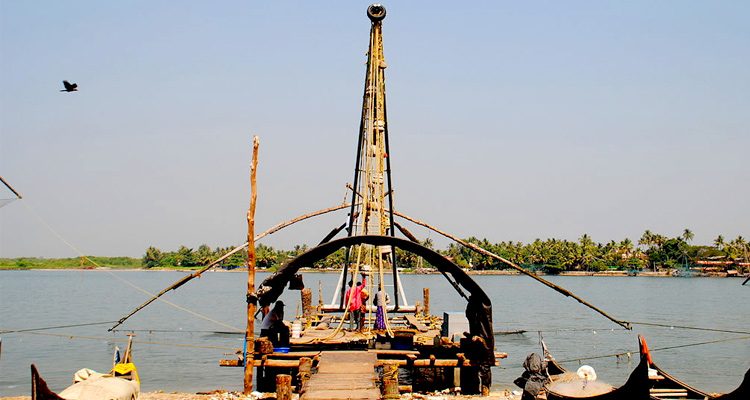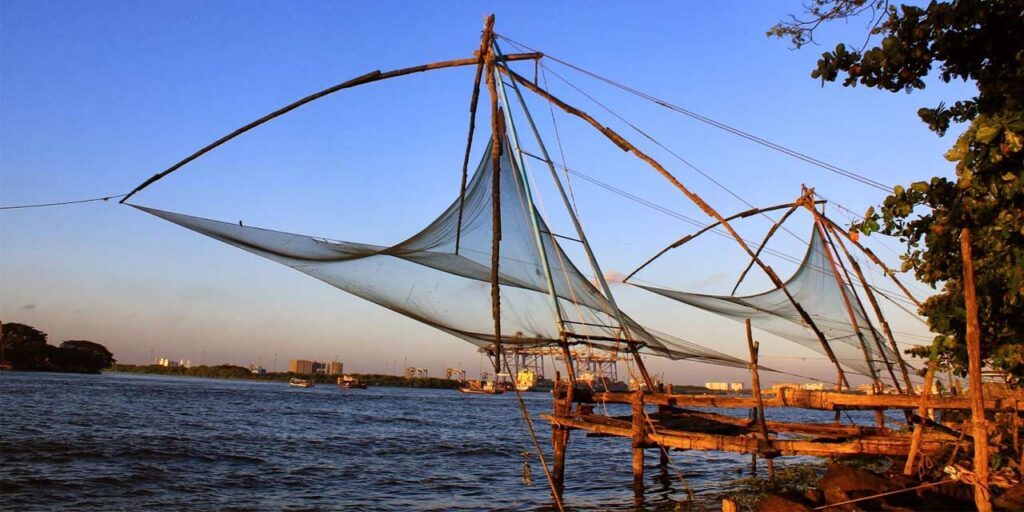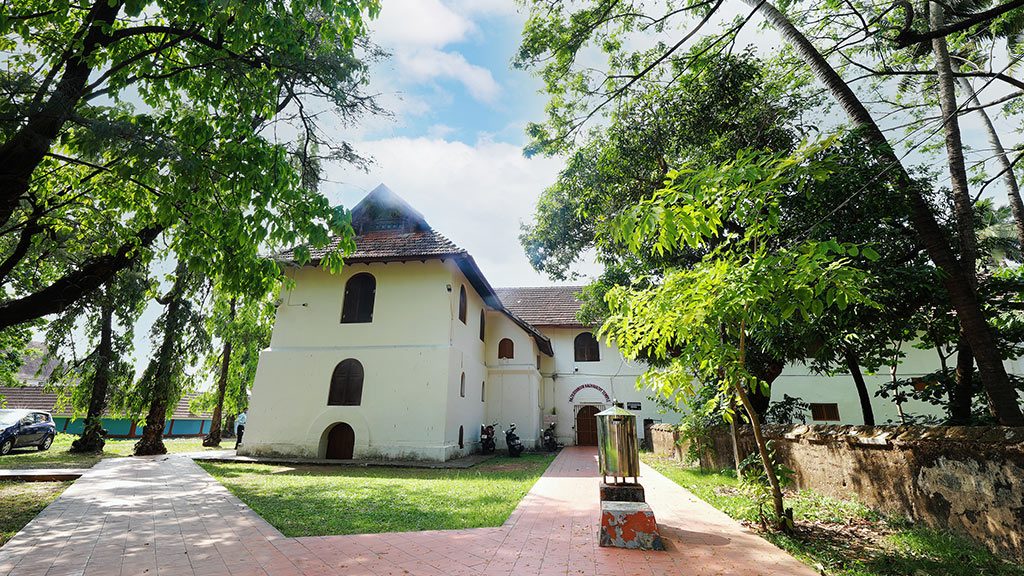
A Day in Fort Kochi & Mattancherry – Where History Whispers Through the Streets.
After the monsoon skies cleared, we set out on a Fort Kochi heritage walk, a journey that felt less like sightseeing and more like stepping into a living museum of Kerala’s colonial history. Fort Kochi and Mattancherry—two twin towns with distinct personalities—still echo with the spirit of centuries-old trade, faith, and culture.
Our day began at Willingdon Island, where the Port Trust and historic Vathuruthi village still tell tales of Kochi’s maritime past. Crossing the old British-era drawbridges, past bat colonies hanging like dark clouds on the trees, we entered Fort Kochi’s nostalgic lanes, where time seems to slow down.

From the Chinese fishing nets, still operated by local fishermen using ancient cantilever techniques, to the quiet beauty of St. Francis Church in Kochi, where Vasco da Gama was once buried, every corner revealed a page from Kerala’s colonial history. Stately colonial mansions like Pierce Leslie Bungalow stood proud, while Princes Street, Jewish Koder House, Bishop’s House, and charming art cafés such as David Hall and Kashi Art Café added color and relaxation to the stroll.
We paused at Loafer’s Corner, once a popular hangout for sailors and traders, and then took a breezy tuk-tuk ride through Bazar Road. This short stretch is one of Kochi’s richest cultural mosaics: here, 39 communities from 39 cultures live together within just five square kilometers.
That ride brought us into Mattancherry, a town where every stone, spice depot, and doorway tells a story. Once the bustling spice hub of Kerala, Mattancherry’s old ginger and pepper warehouses have today transformed into antique shops and atmospheric cafés. We stepped into Jew Town, where the air still carries the fragrance of cinnamon, cardamom, and cloves. Here stands the historic Jewish Synagogue of Mattancherry, one of the oldest outside Israel. Until recently, it was home to Sara, the last of the Jewish settlers, who in her final years was lovingly cared for by a Muslim neighbor—living proof of Kerala’s unity in diversity.
Mattancherry is a living encyclopedia of cultures:
- Dhobis from Tamil Nadu who arrived 400 years ago.
- Papadam makers from the Gowda Saraswat Brahmin community have been here for over 500 years.
- Traders from Yemen (since 1150 AD), Gujarat, Rajasthan, Hyderabad, and even Baghdad.
- The Kutchi Memons from Sindh came as merchants.
- The Christian artisan community that shaped many of Kochi’s iconic colonial buildings.
- Anglo-Indians, goldsmiths from Tamil Nadu and Goa, migrants from Bengal and Kashmir—all finding a home here.

This diversity is not just about origins, but about harmony. Christian and Muslim fishermen still work side by side at the Chinese fishing nets. Recipes from Gujarat, Karnataka, Jain kitchens, and Portuguese homes found their way into Kerala’s culinary cuisine. Together, these communities created a cultural and spiritual synergy that has not only survived but flourished for centuries.
For lunch, we made a pilgrimage of sorts to Kayees Rahmathulla Café, legendary for its Mutton Biriyani—a dish still made without artificial additives, just tradition, skill, and care.
This was more than food; it was heritage served on a plate.
As evening shadows lengthened, we wandered past Dutch cemeteries, Jain temples, and the palace roads of Mattancherry before returning to Kochi city.
Having lived in Kochi for over two decades, I realized anew that Fort Kochi and Mattancherry are not just places—they are portals. To walk here is to travel without a passport, only with an open heart.
Whether you join a walking tour of Kochi, explore with a custom-made heritage tour, or choose offbeat tours designed for deeper experiences—including women-only tours, responsible tourism initiatives, and culinary explorations—Fort Kochi and Mattancherry promise more than just Kochi sightseeing. They promise encounters with living history, cultural harmony, and timeless stories.